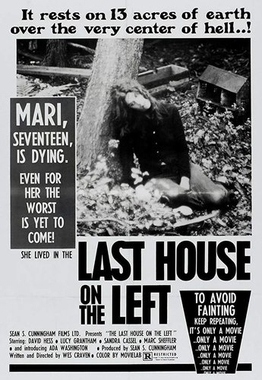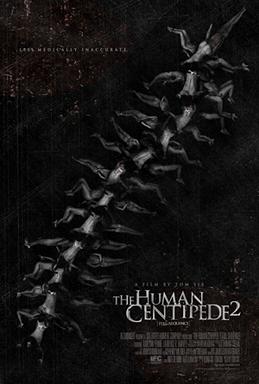Related Research Articles
Video nasty is a colloquial term popularised by the National Viewers' and Listeners' Association (NVALA) in the United Kingdom to refer to a number of films, typically low-budget horror or exploitation films, distributed on video cassette that were criticised for their violent content by the press, social commentators, and various religious organisations in the early 1980s. These video releases were not brought before the British Board of Film Classification (BBFC) due to a loophole in film classification laws that allowed videos to bypass the review process. The resulting uncensored video releases led to public debate concerning the availability of these films to children due to the unregulated nature of the market.
VAC or Vac may refer to:

The Video Recordings Act 1984 is an Act of the Parliament of the United Kingdom that was passed in 1984. It states that commercial video recordings offered for sale or for hire within the UK must carry a classification that has been agreed upon by an authority designated by the Home Office. The British Board of Film Classification (BBFC), which had been instrumental in the certification of motion pictures since 1912, was designated as the classifying authority in 1985. Works are classified by the BBFC under an age-rated system ; it is an offence under the Act to supply video works to individuals who are under the age of the classification designated. Works that are refused classification cannot, under the Act, be legally sold or supplied to anyone of any age unless it is educational, or to do with a sport, religion or music and does not depict violence, sex or incite a criminal offence. The BBFC may also require cuts to be made, either to receive a certain age rating, or to be allowed a classification at all.
This article chronicles the history of British film certificates.

The Last House on the Left is a 1972 American exploitation horror film written, directed and edited by Wes Craven in his directorial debut. The film follows Mari Collingwood, a hippie teenager who is abducted, raped, tortured, and killed by a fugitive gang on her seventeenth birthday. When the gang unwittingly finds refuge in her family's home, the killers face the vengeance of her parents.

R18 is a film or video classification given by the British Board of Film Classification (BBFC). It is intended to provide a classification for works that do not breach UK law, but exceed what the BBFC considers acceptable in the 18 category. In practice, this means hardcore pornography.
United States v. X-Citement Video, Inc., 513 U.S. 64 (1994), was a federal criminal prosecution filed in the United States District Court for the Central District of California in Los Angeles against X-Citement Video and its owner, Rubin Gottesman, on three charges of trafficking in child pornography, specifically videos featuring the underaged Traci Lords. In 1989, a federal judge found Gottesman guilty and later sentenced him to one year in jail and a $100,000 fine.

The 18 certificate is issued by the British Board of Film Classification (BBFC), to state that in its opinion, a film, video recording, or game is suitable only for persons aged 18 years and over. It recommends that no one below that age should be admitted to view a film with an 18 certificate in a cinema, and that 18-rated video recordings should not be sold or rented to anyone below that age.

The Irish Film Classification Office (IFCO) is the organisation responsible for films, television programmes, and some video game classification and censorship within Ireland. Where restrictions are placed by the IFCO, they are legally binding.
Visions of Ecstasy is a 1989 British short film directed by Nigel Wingrove and starring Louise Downie, Elisha Scott, and Dan Fox. It became the only work to be refused certification by the British Board of Film Classification (BBFC) on the grounds of blasphemy. The film features sexualised scenes of Saint Teresa of Ávila with the body of Jesus on the cross.

The Cinematograph Act 1909 is an Act of the Parliament of the United Kingdom. It was the first primary legislation in the UK which specifically regulated the film industry. It unintentionally provided the legal basis for film censorship, leading to the establishment of the British Board of Film Censors in 1912.

Manhunt 2 is a 2007 stealth game by Rockstar Games. It was developed by Rockstar London for Microsoft Windows and PlayStation 2, Rockstar Leeds for the PlayStation Portable, and Rockstar Toronto for the Wii. It is the sequel to 2003's Manhunt and was released in North America on 29 October 2007, and in the UK on 31 October 2008. The game follows Daniel Lamb, a mental patient suffering from amnesia as he tries to uncover his identity, and Leo Kasper, a sociopathic assassin who guides Daniel in his journey.

Mikey is a 1992 American psychological slasher film directed by Dennis Dimster and written by Jonathan Glassner. It stars Brian Bonsall as Mikey, a young boy adopted by a family, who turns out to be a violent psychopath.

British Board of Film Classification is a non-governmental organisation founded by the British film industry in 1912 and responsible for the national classification and censorship of films exhibited at cinemas and video works released on physical media within the United Kingdom. It has a statutory requirement to classify all video works released on VHS, DVD, Blu-ray, and, to a lesser extent, some video games under the Video Recordings Act 1984. The BBFC was also the designated regulator for the UK age-verification scheme which was abandoned before being implemented.

The Human Centipede 2 (Full Sequence) is a 2011 psychological body horror film written, directed, and co-produced by Tom Six. An international co-production of the Netherlands and the United Kingdom, and the sequel to Six's 2009 film The Human Centipede (First Sequence), the film stars Laurence R. Harvey as a psychiatrically and intellectually impaired English man who watches and becomes obsessed with the first Human Centipede film, and decides to make his own "centipede" consisting of 12 people, including Ashlynn Yennie, an actress from the first film.
A pre-certification video is any videotape or laserdisc issued in the UK before the introduction of the 1984 Video Recordings Act.

In British film classifications, the E certificate is an unofficial rating sometimes applied to video titles released in the United Kingdom which are exempt from being classified by the British Board of Film Classification (BBFC) as any of the other certificate categories.

Film censorship in the United Kingdom began with early cinema exhibition becoming subject to the Disorderly Houses Act 1751. The Cinematograph Act 1909 was primarily concerned with introducing annual licensing of premises where films were shown, particularly because of the fire risk of nitrate film. After the Act began to be used by local authorities to control what was shown, the film industry responded by establishing a British Board of Film Censors (BBFC) in 1912, funded by an Incorporated Association of Kinematograph Manufacturers levy.

The Bureau of Pensions Advocates (BPA) is a nation-wide, semi-independent law firm within Canada's Department of Veterans Affairs. In place in one form or another since October 1, 1930, it provides free counsel and legal representation to Canadian Veterans and members of the Royal Canadian Mounted Police in appeals before the Veterans Review and Appeal Board regarding Veterans Affairs Canada decisions on their disability pension and award applications.

The Association for UK Interactive Entertainment (Ukie) is a non-profit trade association for the video game industry in the United Kingdom (UK). Ukie was founded in 1989 as the European Leisure Software Publishers Association (ELSPA), then changed to Entertainment and Leisure Software Publishers Association (ELSPA) in 2002, and to its current name in 2010.
References
- ↑ "Reconsideration requests and appeals". BBFC. Retrieved 9 June 2018.
- ↑ "Video Appeals Committee". Parliamentary Debates (Hansard) . 2 July 1999.